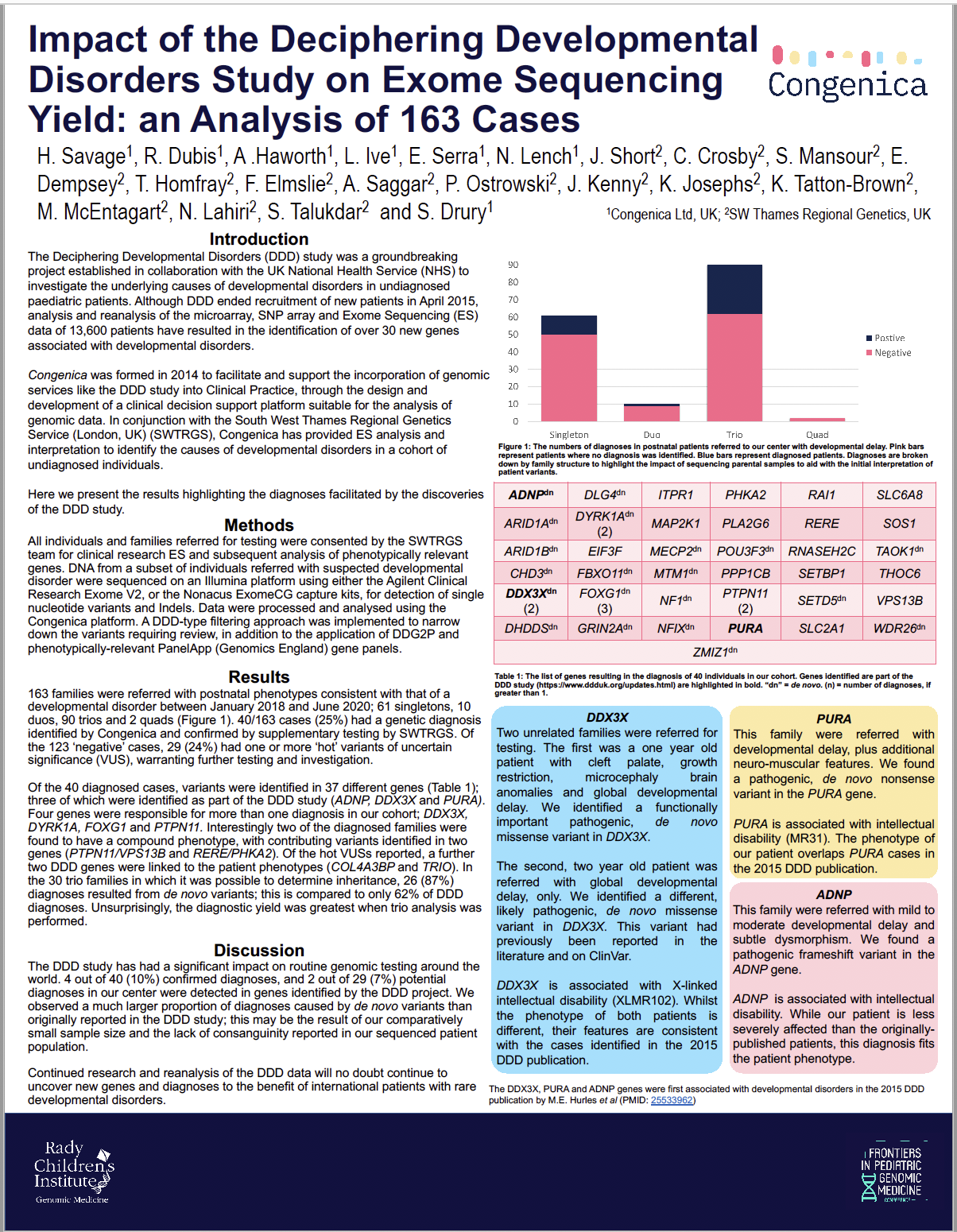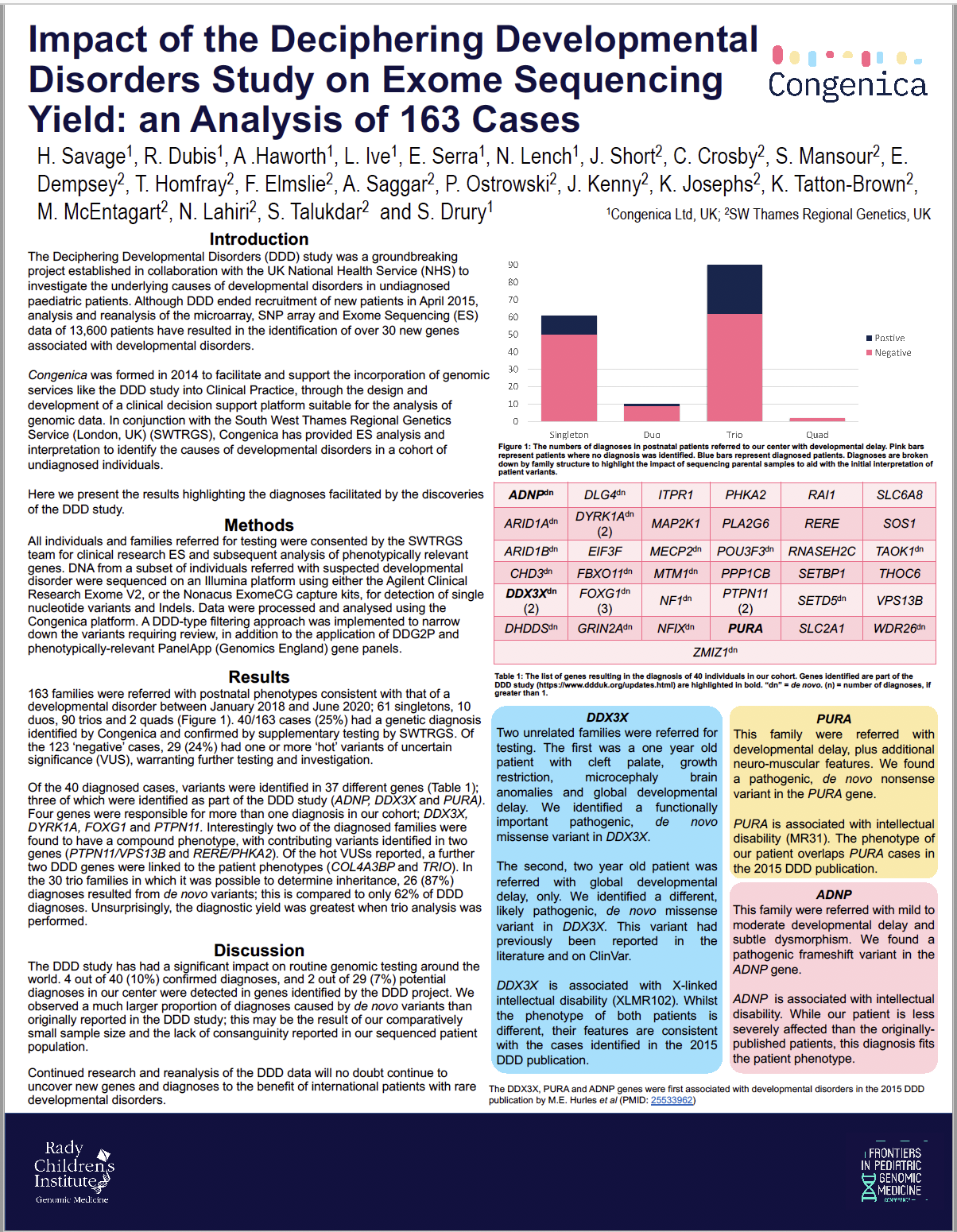Impact of the Deciphering Developmental Disorders Study on Exome Sequencing Yield: an Analysis of 163 Cases
Poster presented at the Rady's Children's Institute Frontiers in Paediatric Medicine Conference discusses an analysis of 163 cases and what they tell us about the impact of the Deciphering Developmental Disorders study on exome sequencing yield.
The Deciphering Developmental Disorders (DDD) study was a groundbreaking project established in collaboration with the UK National Health Service (NHS) to investigate the underlying causes of developmental disorders in undiagnosed paediatric patients. Although DDD ended recruitment of new patients in April 2015, analysis and reanalysis of the microarray, SNP array and Exome Sequencing (ES) data of 13,600 patients have resulted in the identification of over 30 new genes associated with developmental disorders.
Congenica was formed in 2014 to facilitate and support the incorporation of genomic services like the DDD study into Clinical Practice, through the design and development of a clinical decision support platform suitable for the analysis of genomic data. In conjunction with the South West Thames Regional Genetics Service (London, UK) (SWTRGS), Congenica has provided ES analysis and interpretation to identify the causes of developmental disorders in a cohort of undiagnosed individuals.
The impact of the DDD has been felt in our ES and reporting service; through which 10% of confirmed developmental disorder diagnoses, and 7% potential diagnoses in our center were detected in genes identified by the DDD project. Comparing our results, we observed a much larger proportion of de novo variants than originally reported in the DDD study; this may be the result of our comparatively small sample size and the lack of consanguinity reported in our sequenced patient population.
Continued research and reanalysis of the DDD data will no doubt continue to uncover new genes and diagnoses to the benefit of international patients with rare developmental disorders.



.png?width=320&height=192&name=Untitled%20design%20(8).png)
.png?width=320&height=192&name=Since%202016%2c%20the%20number%20of%20women%20working%20in%20STEM%20fields%20in%20the%20UK%20has%20increased%20by%20216%2c552%2c%20taking%20the%20total%20number%20over%20the%201%20million%20mark%20for%20the%20first%20time.%20Women%20now%20make%20up%2024%25%20of%20the%20STEM%20workforce%20i%20(2).png)
-1.png?width=320&height=192&name=Deciphering%20Developmental%20Disorders%20(1)-1.png)